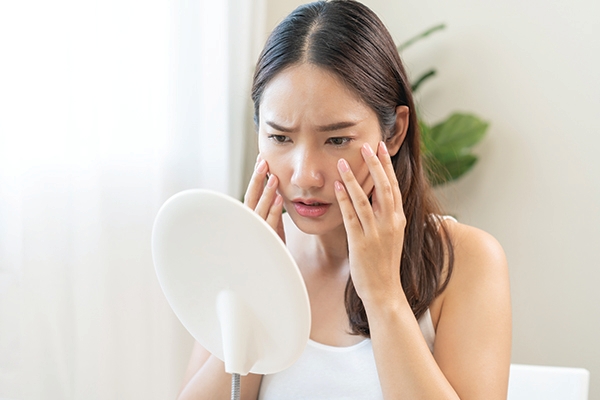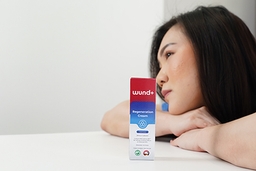Glow from the Inside Out: How Your Gut Affects Your Skin

Ever feel like you're using expensive skincare products, yet your skin still acts up? The problem might not be on the outside, but inside, specifically, in your gut.
Gut health and skin condition are more closely linked than many people realize. Your gut isn’t just for digesting food. It’s home to trillions of bacteria that help regulate inflammation, hormones, and the immune system.
And all of these factors directly affect your skin.
The gut-skin connection
If you're struggling with acne, eczema, or psoriasis, skincare alone might not be the solution. An imbalance in your gut could be the root cause.
A healthy gut helps reduce inflammation. But when the ecosystem of bacteria inside becomes unbalanced—a condition known as dysbiosis—inflammation can spread throughout the body, including to the skin.
The result? More sensitivity, frequent breakouts, or even chronic skin conditions, such as rosacea and psoriasis.
It’s not just your diet. Lifestyle factors, such as stress, poor sleep, and a lack of physical activity, can also disrupt your gut balance. High stress, for instance, can activate harmful gut bacteria, worsen inflammation, and lead to skin flare-ups.
How does the gut affect your skin?
Here are the key ways your gut supports healthy skin:
- Regulating inflammation
A balanced gut microbiome helps prevent chronic inflammation that can trigger acne, eczema, and psoriasis. When your gut is in harmony, your skin tends to be clearer and calmer. - Nutrient absorption
The gut absorbs essential nutrients for skin health, like vitamins A, C, E, zinc, and omega-3 fatty acids.
These nutrients are vital for skin repair, hydration, and resilience. Poor gut health can hinder absorption, leading to dull or dry skin. - Hormonal regulation
Gut microbiota influences the body’s hormone levels, including estrogen, progesterone, and cortisol. Hormonal imbalances are a common cause of acne. - Immune support
About 70% of your immune cells are located in the gut. A healthy gut strengthens immune responses that protect your skin from harmful bacteria and pathogens that can cause acne and other infections.
Signs your gut might be out of balance

When your gut health is off, your skin often gives you clues. Watch out for signs like:
- Persistent acne, especially around the chin, jawline, and cheeks. This may indicate hormonal or digestive imbalances.
- Dry, red, or flaky skin that won’t go away, possibly due to poor nutrient absorption.
- Frequent flare-ups of eczema or psoriasis.
- Dark circles or puffiness under the eyes, which can be linked to poor detoxification.
Foods that nourish the skin from within

To support both your gut and skin health, try incorporating these skin-friendly foods into your diet:
- High-fiber foods
Fruits, leafy greens, whole grains, and legumes are rich in fiber, which feeds the good bacteria in your gut.
A healthy gut reduces inflammation in both the digestive tract and the skin, leading to a clearer complexion. - Fermented foods (probiotics)
Yogurt, kefir, kimchi, and tempeh are rich in probiotics—beneficial bacteria that support gut health.
These can help strengthen the immune system, reduce inflammation, and improve skin hydration. - Antioxidant-rich foods
Berries, dark leafy greens, and brightly colored vegetables are packed with antioxidants.
These compounds help neutralize free radicals and reduce inflammation, protecting the skin and promoting a healthy glow. - Healthy fats (Omega-3s)
Fatty fish, such as salmon, as well as chia seeds and flaxseeds, are excellent for hydrating the skin from within and reducing inflammation. - Prebiotic foods
Garlic, onions, and asparagus serve as fuel for the gut's probiotics. Including these in your meals helps maintain a balanced microbiome.
Lifestyle changes matter too
Diet alone isn’t enough—your lifestyle plays a crucial role. Start with simple steps, like:
- Getting at least 7 hours of sleep each night
- Exercising regularly for at least 30 minutes a day
- Managing stress through meditation, journaling, or even a short evening walk
Improving your gut microbiome takes time, usually around 2 to 3 months of consistent healthy habits. But trust the process. Your effort will be rewarded with calmer, brighter, and healthier skin.



